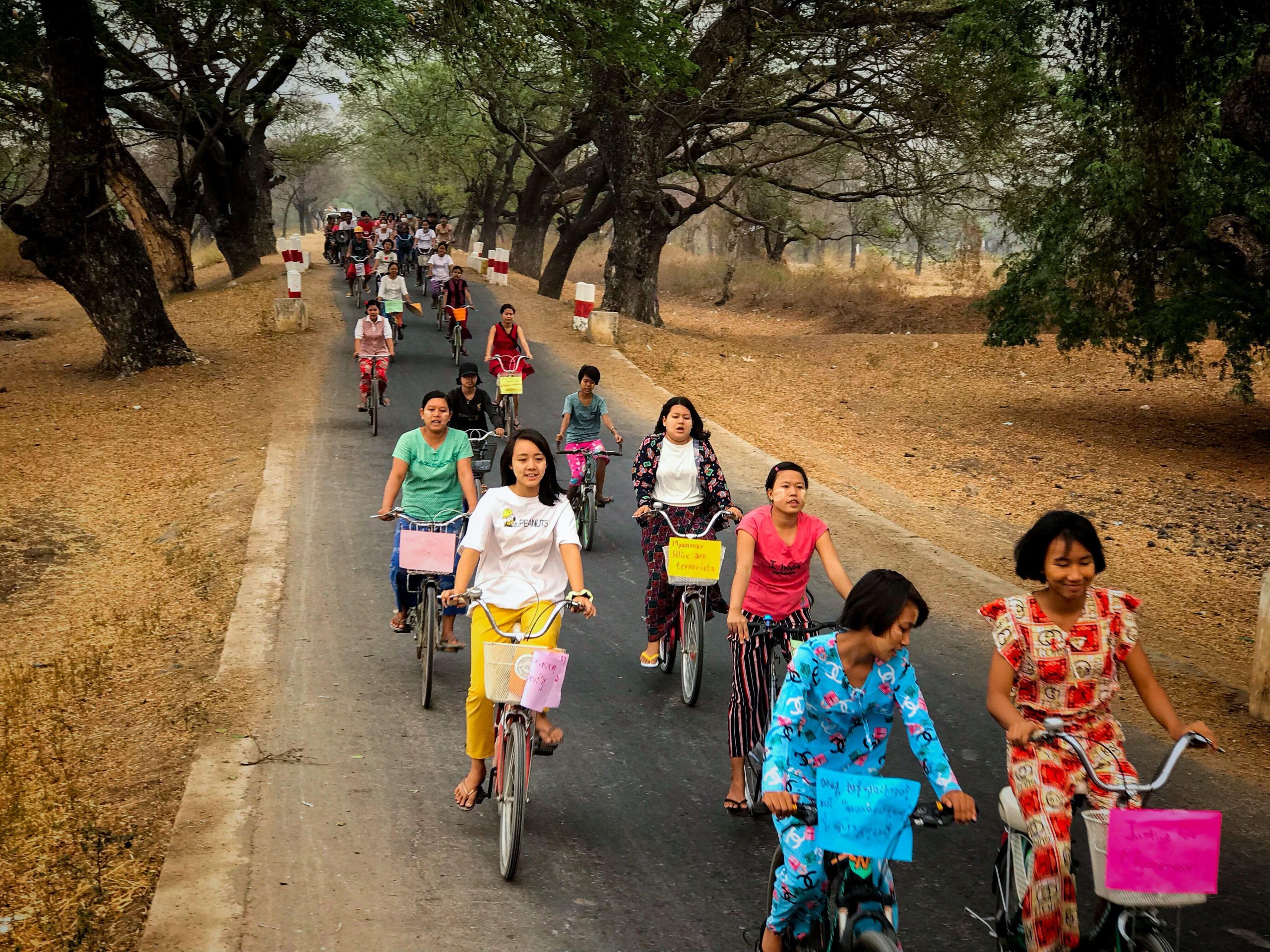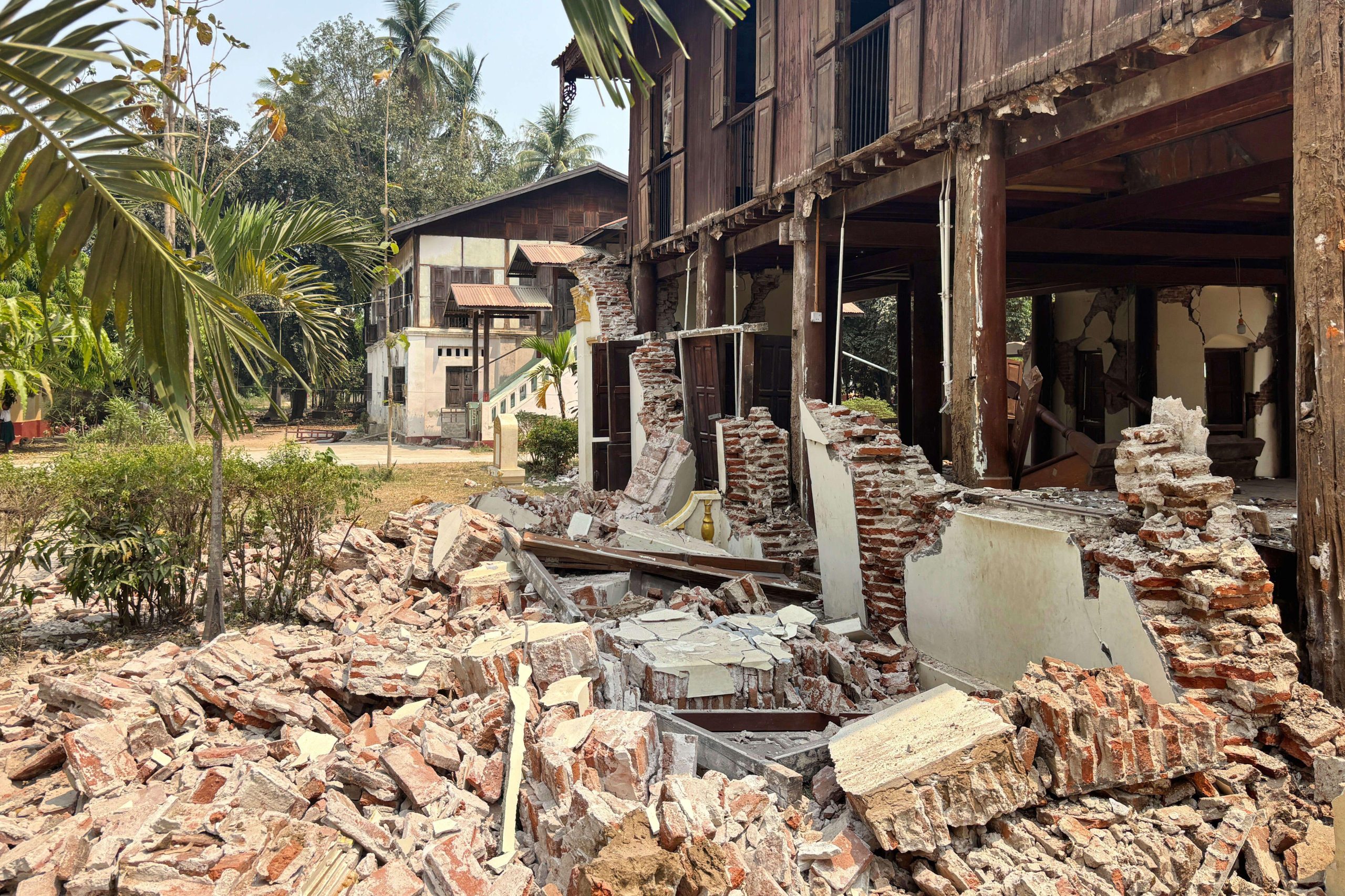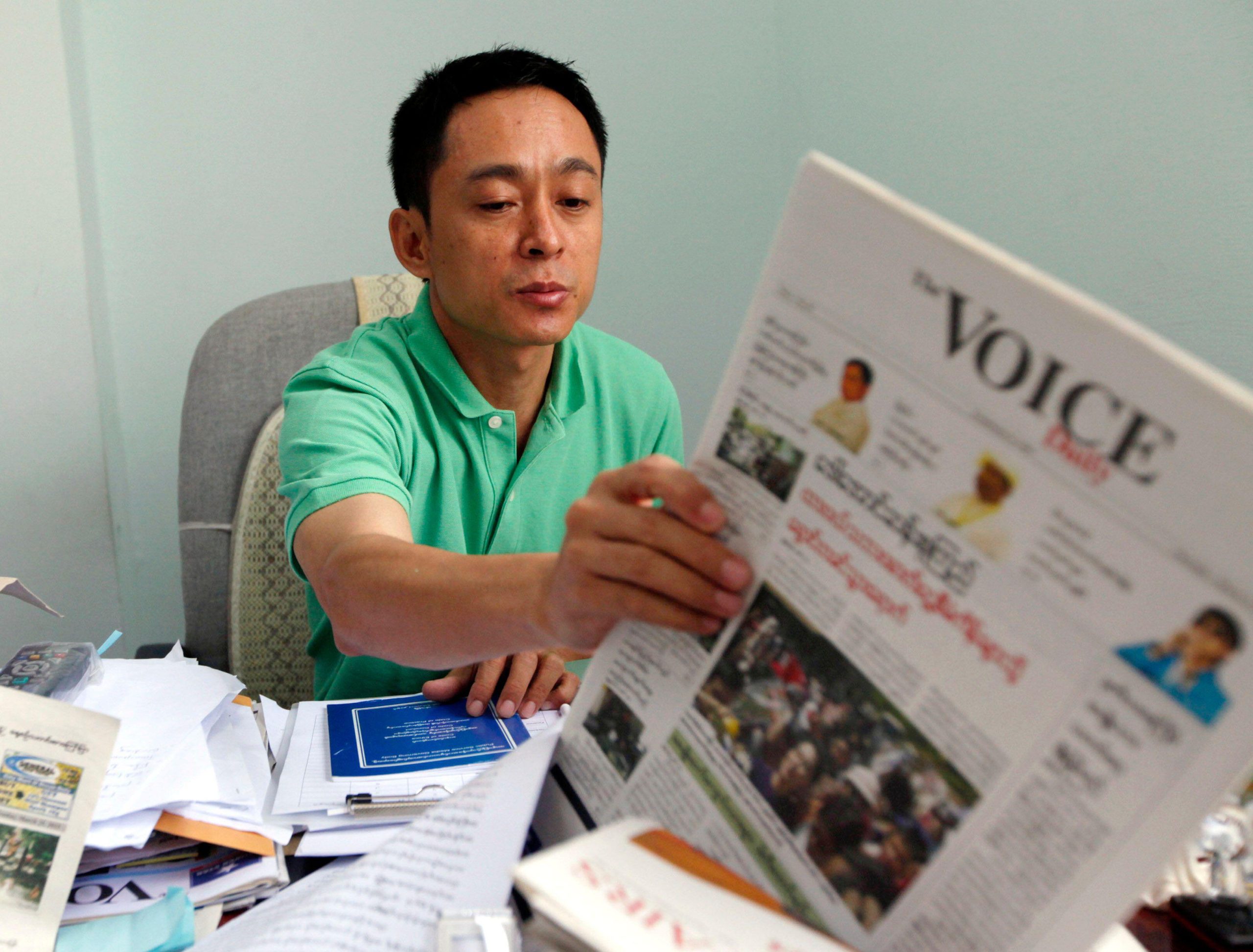The Burmese junta, responsible for the brutal crackdown on recent protests against the authorities’ decision to hike fuel prices at a time of worsening economic conditions, is bankrolling its regime by exploiting the country’s vast natural resources at the expense of the Burmese people and environment.
Oil, gas, gold and timber – amongst other commodities – are being ruthlessly sought out for extraction, sale and export abroad, often with the help of complicit foreign companies. According to campaigners, the trade in these natural resources has been linked to serious human rights and environmental abuses, including killings, forced labour, deforestation, pollution, land grabbing and compulsory relocation.
The trade in Burmese timber has been particularly responsible, say pressure groups, for a disturbing number of violations and, in some cases, accused of being directly to blame for perpetuating armed conflicts and insurgency inside the country. Much of the timber coming out of Burma is being exported to China and other Asian manufacturing hubs before finding its way onto the high streets of Europe and beyond.
Highly valuable Burmese teak and other hardwood is used in all manner of products from garden furniture to decking for luxury yachts. Index found a number of UK companies openly selling teak from Burma despite accusations from environmentalists that this trade in ‘blood timber’ is unacceptable.
Campaigners argue that despite large profits being made by the Burmese junta, and timber suppliers, manufacturers and retailers, little or none of this wealth is filtering back to the Burmese people. They are calling on companies and governments to cease doing business with the Burmese regime to help severe the revenue gained from these unsustainable trades.
Although images and reports of the recent protests and subsequent crackdown were seen around the world and helped to reignite global interest in south Asia’s ‘forgotten’ country, critics say the ruthless exploitation of the country’s resources – and the involvement of outsiders – has been woefully under-reported.
In Shwegyin township, in Burma’s Nyaunglebin District in eastern Pegu, large-scale logging operations sanctioned by the state-run Myanmar Timber Enterprise (MTE) – part of the government’s Ministry of Forestry – have been linked to murders, violent attacks and the ongoing harassment of local Karen people.
Problems initially began back in the 1990s when the area was first militarised, but have grown acutely since construction of a controversial and dam was given the go-ahead. As land upstream of the dam was due to be flooded, rampant logging and other resource extraction was actively encouraged.
According to US advocacy group Earth Rights International (ERI), in 2006 the Burmese military were redeployed to the region to challenge Karen control and to open up and maintain fresh timber and mining concessions nearby. The group claims that many villagers in the area have been displaced, some reportedly hunted down in the nearby mountains and shot onsite.
Others have been forced to pay money to the military, had their crops and other food sources destroyed, and been coerced into forced labour. Investigations by ERI have revealed how the Burmese regime as a whole, forestry officials, the military and private companies all profit from the trade in timber from the region whilst local inhabitants are forced to live in increasing poverty.
The MTE has contracted out much of the logging operations in the region to private companies, on condition that at least 35 per cent of the logs are sold back to them, for onward sale and profit. The military itself, along with local militias, in turn demand ‘protection money’ from subcontractors employed to physically undertake the logging.
After being chopped, the logs are hauled through the forest and loaded onto boats or trucks for transport to sawmills. The timber is then purchased for use internally or export abroad. Campaigners fear that once all the forest in the immediate vicinity has been stripped, the military, closely followed by forestry officials and logging companies, will move into adjacent, largely untouched areas, and begin the cycle of destruction again.
‘The situation [in Shwegyin township] is pretty dire – there’s virtually nothing left, the logging companies, and the mining companies, and just about everybody else has stripped the place bare,’ one Bangkok-based activist told Index, ‘ the worst thing is that this is being repeated all over Burma.’
East of Pegu Division, on the Thai-Burmese border, the trade in timber has been equally rife, and been responsible, according to campaigners, for continuing the cycle of armed conflict between the Burmese army and the myriad of insurgent groups operating in the area. All parties have been implicated in the logging of teak as a source of revenue, in some instances reportedly funding the purchase of arms and other contraband goods.
China continues to be another major importer of Burmese timber however, much of it illegally sourced by Chinese logging companies operating inside Burma under the gaze of corrupt officials. This trade alone is thought to be worth $250 million annually; overall timber exports from Burma have accounted for as much as 9.3 per cent of the country’s legal foreign exhange earnings in a single year.
Advocacy group Global Witness, which first raised the alarm about the role played by timber in perpetuating conflict – the group highlighted in 1995 how the Khmer Rouge were trading timber to fund its murderous regime in Cambodia – argues that the continued logging of Burmese forests jepoardises any chance of peace or sustainable development in the country.
Chinese companies have been identified as supplying Burmese teak and teak products to retail markets elsewhere in the world. In the UK, despite vigourous campaigns by activists, Index has discovered that a number of timber firms continue to sell teak from Burma.
NHG Timber Ltd, based in Sanderstead, Surrey, offers Burmese hardwood for sale as planks, boards and logs; marine specialists Hawke House, based in Gosport, Hampshire, uses Burmese teak for decking destined for use in the manufacturer of luxury yachts; and the Oxfordshire-based Timbnet retails sawn teak amongst other hardwoods. Pressure groups say that furniture made from Burmese teak is frequently found for sale in both specialist and high street stories.
Whilst there is no suggestion that these – or other – companies are directly involved in any illegality or wrongdoing, campaigners argue that anyone doing business with Burma is contributing to the suffering of the country’s people and environment: ‘Companies trading in goods and commodities such as oil, gas, timber, gems and clothing are directly or indirectly helping keep the regime in power,’ a spokesperson for the Burma Campaign UK told Index.
The group is not calling for a complete boycott of Burma, but targeted economic sanctions that they believe will help cut the economic lifeline to the Burmese government.
At the time of writing, democracy activists, students and journalists inside Burma continue to face persecution for organising, participating or reporting on the recent dissent against the increase in fuel prices. Safely investigating the role natural resources are playing in propping up the regime is virtually impossible internally. But, say campaigners, the outside world has a duty to highlight those playing a part in legitimising the Burmese junta by doing business with it.




